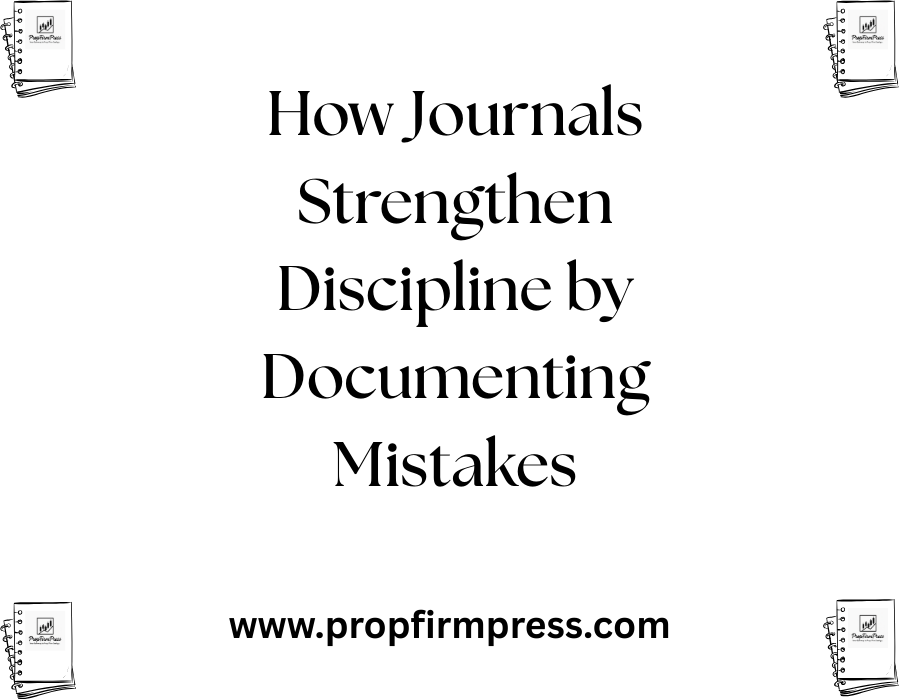How Journals Strengthen Discipline by Documenting Mistakes
In the journey toward personal and professional growth, maintaining discipline is a core challenge many face. Discipline is not born out of perfection but from acknowledgement and learning from errors. One powerful method to boost discipline is through journaling, specifically by documenting mistakes. This simple practice fosters accountability, self-awareness, and continuous improvement.
Many successful individuals credit their achievements to a well-kept journal where errors are not hidden but openly recorded and analyzed. This article explores how keeping a journal that focuses on mistakes can act as a potent discipline booster.
Why Documenting Mistakes is Essential
Human nature often leads us to avoid reflecting on setbacks or failures. It is easier to forget and move on than to confront these uncomfortable realities. However, documenting mistakes in a journal forces introspection. It transforms errors from fleeting frustrations into learning opportunities.
When mistakes are recorded systematically, they become tangible data points that help identify recurring patterns. For instance, if a trader consistently loses money due to rash decisions, journaling those incidents can highlight this tendency. Eventually, this creates a roadmap for specific areas that require disciplinary improvement.
By embracing your mistakes on paper, you neutralize their emotional charge. Instead of dwelling in guilt or frustration, the focus shifts to solutions and strategies. This mindset nurturing greatly improves discipline since it encourages proactive behavior rather than reactive avoidance.
How Journals Create Accountability
Accountability is the cornerstone of discipline. The simple act of writing down what went wrong creates a recorded commitment to recognizing and correcting errors. Unlike vague memory, a journal entry is concrete evidence of where improvements are needed.
When you have a journal full of honest reflections, you hold yourself accountable for your actions. This self-accountability instills responsibility and reduces the tendency to repeat the same mistakes. The psychological pressure of seeing your progress (or lack thereof) documented daily or weekly propels you to maintain consistent discipline.
For those working within teams or whose actions impact others, sharing a journaling habit can enhance external accountability. This, however, requires transparency and trust but can multiply discipline by integrating social responsibility with personal reflection.
Techniques for Effective Mistake Documentation
To maximize the benefits of journaling mistakes, certain techniques can be applied:
-
Be Specific: Write down the exact mistake, situational details, emotions felt, and the consequences.
-
Identify Triggers: Note any factors that led to the error, such as stress, distractions, or lack of preparation.
-
Reflect on Alternatives: Consider what could have been done differently and outline actionable steps for next time.
-
Consistency is Key: Make journaling a daily or regular habit, even when days are successful, to maintain self-awareness.
-
Review Regularly: Periodically revisit past entries to observe progress and recurring challenges.
By applying these methods, your mistake journal becomes a dynamic tool for strengthening discipline through targeted self-improvement.
Psychological Benefits of Maintaining a Mistake Journal
Beyond accountability and practical improvements, journaling mistakes has profound psychological benefits that underpin discipline enhancement. It reduces anxiety associated with failure by externalizing thoughts onto paper, leading to clarity and emotional detachment from negative experiences.
This practice also fosters humility, a recognition that mistakes are natural and part of the learning curve. Accepting imperfections prevents the paralysis that perfectionism can cause and encourages steady progress instead.
Moreover, journaling promotes metacognition — the awareness of one’s own thought processes. Understanding how and why mistakes happen gives you greater control over future behavior, thus reinforcing self-discipline.
Journaling Mistakes in Various Fields: A Universal Discipline Booster
Whether in trading, entrepreneurship, education, or personal goals, journaling mistakes transcends industries. For traders, documenting losing trades and emotional reactions equips them to manage risks better and adhere to strategies. Entrepreneurs can log failed decisions, market misreads, or team conflicts to iterate and innovate effectively.
Students learning from quiz errors or study habits can tailor their learning techniques. Even fitness enthusiasts tracking lapses in diet or workout regimes can use mistake journals to reinforce commitment and avoid slippage.
This versatility makes journaling mistakes a universally applicable discipline booster that helps individuals increase transparency with themselves and create accountability structures resistant to complacency.
Tips to Maintain Motivation in Mistake Journaling
Starting a mistake journal is easy; maintaining motivation over months or years is the challenge. Here are some tips to help stay committed:
-
Set a Fixed Time: Journaling at the same time daily creates a routine and makes the habit easier to maintain.
-
Keep It Private: Knowing that your journal is a safe space encourages honesty and thorough reflection.
-
Celebrate Improvements: Acknowledge moments when you successfully avoid past errors or exercise improved discipline.
-
Use Prompts: If stuck, use prompting questions like “What did I learn from today’s mistake?” or “How can I improve tomorrow?”
-
Keep Entries Brief but Focused: Journaling doesn’t need to be lengthy; short, focused notes are often more sustainable.
Applying these tips will help you build a robust discipline-enhancing routine centered around documenting mistakes.
Leveraging Journals for Long-Term Discipline Development
Journaling mistakes is not about short bursts of self-criticism but about fostering a long-term discipline mindset. As you accumulate entries and insights, your journal becomes a personal guidebook outlining your growth journey.
This repository of lessons learned equips you to develop resilience and grit — traits fundamental to discipline. By consistently referencing documented mistakes, you reduce the likelihood of repeating them and increase your overall efficiency and decision-making quality.
Over time, this leads to intrinsic motivation where discipline is sustained by internal values and awareness rather than external pressure or transient motivation.
